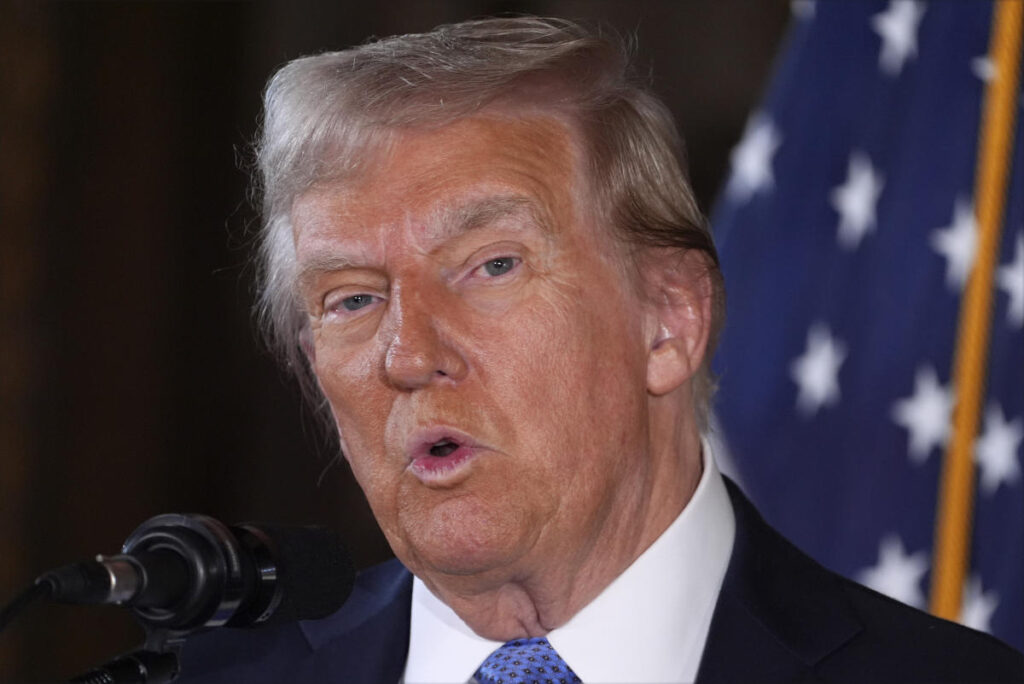In a recent press conference at his Mar-a-Lago club, President-elect Donald Trump entertained the controversial and debunked theory linking vaccines to autism. This discussion arose in the context of his appointment of Robert F. Kennedy Jr., a noted anti-vaccine advocate, to lead the Department of Health and Human Services. Trump mentioned that Kennedy would investigate the reasons behind the rising rates of autism, seemingly giving credence to an unfounded narrative. In his speech, Trump acknowledged Senate Republican leader Mitch McConnell’s defense of the polio vaccine, affirming his belief in vaccines while assuring, “You’re not going to lose the polio vaccine.”
Autism, a developmental disability attributed to variations in brain development, manifests through a range of symptoms that overlap with other conditions. Signs of autism can include communication delays, emotional and social withdrawal, and a heightened need for routine. Researchers have suggested that genetics may play a role in the development of autism. According to the latest figures from the Centers for Disease Control and Prevention (CDC), approximately 1 in 36 children in the U.S. was diagnosed with autism by the age of eight in 2020, marking a significant increase from previous years when the rate stood at 1 in 44 just two years prior.
Research indicates that the rising rates of autism are not directly associated with vaccines. The absence of blood tests or biological markers makes the diagnosis of autism heavily reliant on behavioral assessments. Historically, autism was only diagnosed in children exhibiting severe communication or social interaction issues. However, over the last three decades, broader definitions have been adopted, including milder manifestations classified under the umbrella of autism spectrum disorders. Experts like Maureen Durkin have noted that the majority of recent increases in diagnoses concern mildly affected individuals who might not have been previously labeled as autistic, suggesting that earlier diagnostic criteria may have excluded many affected children.
The increase in autism diagnoses can also be attributed to enhanced screening practices and the availability of autism services, enabling earlier intervention. Additionally, growing advocacy and awareness targeting minority communities, particularly Black and Hispanic families, have contributed to heightened recognition of autism, leading to more diagnoses within these groups. In stark contrast to the speculations regarding vaccines, scientific consensus dismisses any correlation between vaccinations and autism, a misconception rooted in a discredited, fraudulent study published in 1998.
Decades of rigorous research conducted both in the U.S. and internationally have reaffirmed that vaccines, including those containing thimerosal, have no connection to autism. Although thimerosal has been phased out of most routine childhood vaccinations, it remains in some flu vaccine formulations, albeit with thimerosal-free alternatives widely available. The American Academy of Pediatrics advocates for vaccines as “one of the most significant medical innovations of our time,” underscoring their role in preventing serious illnesses and ensuring public health.
Responding to Trump’s remarks, Mitch McConnell—who himself contracted polio as a child—voiced strong opinions about the need to uphold public confidence in vaccines. He cautioned any of Trump’s nominees seeking Senate confirmation against endorsing theories that undermine established public health measures. McConnell characterized efforts to delegitimize proven medical interventions as not only uninformed but also perilous, marking it imperative for administration appointees to avoid any association with such harmful rhetoric. The ongoing discourse surrounding vaccines and their importance in public health continues to elicit strong opinions from both scientific communities and political leaders, highlighting the critical need to address misinformation in health discussions.

